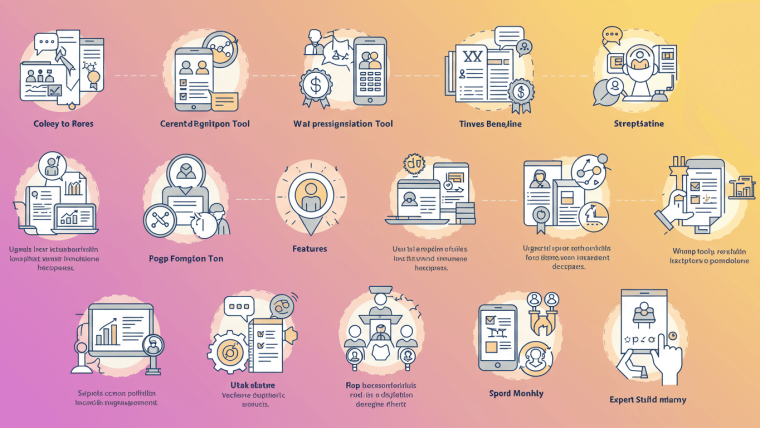As the event landscape evolves, businesses and organizations are faced with a pivotal decision: should you go fully virtual, or combine the best of physical and online worlds with a hybrid event? Both formats have distinct advantages and challenges depending on your audience, objectives, and resources.
This blog will explore everything you need to know about hybrid and virtual events, comparing their benefits, drawbacks, and use cases. By the end, you’ll have a clear understanding of which format suits your needs and how to leverage them for success.
What Are Hybrid Events?
Hybrid events blend in-person and online experiences to create a single cohesive event. This could look like a physical trade show hosted in a convention center while simultaneously live-streaming keynote sessions for remote attendees.
Key Features of Hybrid Events:
- Physical and Digital Elements: Hybrid events combine on-site experiences (stage presentations, in-person networking) with online components like Q&A sessions or virtual booths.
- Two Audiences in One: You’ll manage two audiences simultaneously; those attending in person and those joining digitally.
Pros of Hybrid Events:
- Wider Audience Reach: By blending physical and virtual formats, you can accommodate attendees regardless of their location or ability to travel.
- Enhanced Engagement Opportunities: On-site attendees can connect face-to-face, while virtual attendees gain interactive tools like chatrooms and polls.
- Greater Accessibility: Hybrid options ensure individuals with disabilities or limited mobility can participate.
- Comprehensive Analytics: Measure the success of both physical and online experiences with data such as registration metrics, participation levels, and feedback.
- Longer Content Shelf Life: With recorded sessions, attendees can revisit sessions and engage long after the event ends.
Challenges of Hybrid Events:
- Higher Costs: Planning for both physical spaces and virtual platforms requires greater upfront investment.
- Complex Logistics: Managing two audiences simultaneously is resource-intensive and requires skilled event organizers.
- Technology Dependencies: Hybrid events often rely on robust technology for live streaming, connectivity, and virtual engagement.
When to Choose Hybrid:
Hybrid is ideal if you want to maximize reach, cater to diverse audience needs, or create more inclusive and engaging experiences.
What Are Virtual Events?
Virtual events eliminate the physical venue entirely, bringing the experience into the online world. These can include webinars, virtual conferences, or live-streamed music performances, with participants joining remotely from anywhere in the world.
Key Features of Virtual Events:
- Fully Online Format: The event experience is virtual, hosted on platforms like Zoom, Hopin, or Microsoft Teams.
- Global Accessibility: Location no longer limits who can participate.
Pros of Virtual Events:
- Cost Efficiency: Virtual events eliminate venue rentals, travel expenses, and catering costs, making them a more budget-friendly option.
- High Scalability: Virtual platforms can accommodate much larger audiences, making it easier to scale your reach.
- Convenience for Attendees: Participants can join from the comfort of their homes, reducing time spent commuting and improving attendance rates.
- Eco-Friendly Option: Without travel or on-site waste, virtual events have a much smaller carbon footprint.
- Advanced Data Insights: Virtual platforms provide detailed analytics, from session attendance to engagement metrics, helping you measure success effectively.
Challenges of Virtual Events:
- Limited Networking Opportunities: Online networking is harder to replicate compared to organic, face-to-face exchanges.
- Screen Fatigue: Virtual-only events risk disengagement if sessions run too long or lack interactivity.
- Reliance on Technology: Everything hinges on stable internet, compatible devices, and user-friendly platforms.
When to Choose Virtual:
Go for virtual events when your budget is limited, your attendees are highly geographically dispersed, or when you want a simpler way to launch your event quickly.
Comparing Hybrid and Virtual Events
To help you decide between hybrid and virtual formats, here’s a side-by-side comparison of key factors:
|
Factor |
Hybrid Events |
Virtual Events |
|---|---|---|
|
Audience Reach |
Wider, with a combination of in-person and online attendees. |
Unlimited, with a global online audience. |
|
Cost |
Higher due to physical and virtual setup. |
Lower due to the absence of physical venue needs. |
|
Engagement |
High: Combines face-to-face interaction with virtual tools. |
Moderate: Limited face-to-face networking options. |
|
Technology Needs |
Complex systems for seamless overlap of physical and virtual. |
Simple platforms for online participation. |
|
Environmental Impact |
Moderate, depending on the size of the physical event. |
Minimal, due to no travel or on-site logistics. |
Each format delivers unique strengths, and in some cases, you may consider blending both for maximum impact.
Factors to Consider When Choosing Your Event Format
Every event is unique, so your choice between hybrid and virtual depends on these key factors:
1. Budget
If your budget is constrained, virtual events may provide the most value without sacrificing audience reach.
2. Audience Expectations
Do your attendees crave in-person networking? Or are they comfortable with virtual formats? Understanding your audience’s preferences is crucial.
3. Event Goals
Are you launching a product that requires physical demonstrations? Or is education and knowledge-sharing the primary focus? Your goals can help dictate the right format.
4. Technology Resources
Having the right tech infrastructure (and trained staff) is key for hybrid events. Evaluate your team’s capabilities and tech tools before committing.
5. Timeline
Virtual events can often be organized quickly. Hybrid events, however, require extensive planning for venues, vendors, and technology.
Unlock New Possibilities With the Right Format
Both hybrid and virtual events have proven to be game-changers in the event industry. Whether you choose hybrid for dynamic engagement or virtual for a global reach, both options promise exciting opportunities for event organizers navigating this digital-first era.
If you’re looking to take your events to the next level, explore tools and platforms that can help bridge the gap between planning and execution. Start by identifying your goals, focusing on your audience’s needs, and letting the format you choose amplify your message.







Webinar Accessibility: Best Practices for Inclusive Online Events
Enhancing Webinar Accessibility: Best Practices for Inclusive Online Events
12 Proven Webinar Engagement Tips That Actually Work
How to Boost Webinar Attendance: 12 Proven Strategies